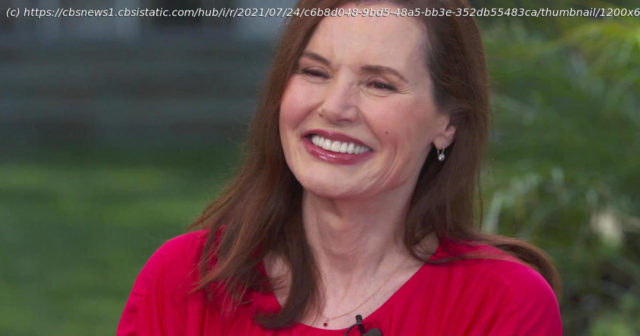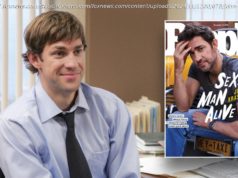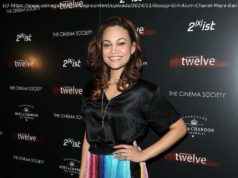Thirty years after starring in the transcendent tale of female friendship “Thelma and Louise,” the Oscar-winning actress is still fighting to improve opportunities for women in the film industry, in front of, and behind, the camera.
Has it really been thirty years? Almost from the day it opened in May 1991, Ridley Scott’s feminist buddy movie “Thelma & Louise” was considered one of the most powerful films of a generation. Geena Davis, who’d lobbied for the role for more than a year, was Thelma to Susan Sarandon’s Louise – but Davis was actually signed to play either part. “I was gonna be in that movie,” Davis said. “I didn’t care, I was going to be in that movie.” Correspondent Tracy Smith asked, “Did you know then that it would get the kind of reaction that it did?” “Absolutely not. None of us knew. It was a small movie, very small budget, and we just hoped people would see it and not hate the ending, you know? We had no clue it would strike a nerve like that.” At the time, Davis had already created some of the most memorable female characters on film, from a newly-dead bride in “Beetlejuice,” to a quirky dog-trainer in “The Accidental Tourist.” But “Thelma & Louise” was on another level. Smith asked, “And of course people said, ‘This changes everything’?” “Exactly,” Davis replied. And, how did it? “Oh yeah, let me think of the ways. Oh, it didn’t! So, the change hasn’t really happened yet,” Davis laughed. “Still waiting.” That change she’s waiting for is a film industry with as much opportunity for women as there is for men. Her own activism began in 2004, when she noticed there were a lot more boys than girls in the shows her young daughter watched. Davis commissioned a study and, as she showed in her 2018 documentary, “This Changes Everything,” shared the data with studio execs, who started casting more girls. Now, she said, “It’s 50-50.” But there are other problems that are proving tougher to fix. Smith asked, “Have things gotten better for women in their 50s and beyond?” “No, no. No, it hasn’t. It’s much different for female actors past 50 than male actors past 50. The majority of female characters, I believe, are in their 20s, and the majority of male actors are in their 30s and 40s.” To shed even more light on the issue, she helped start the Bentonville Film Festival, an annual event held in Bentonville, Ark.






